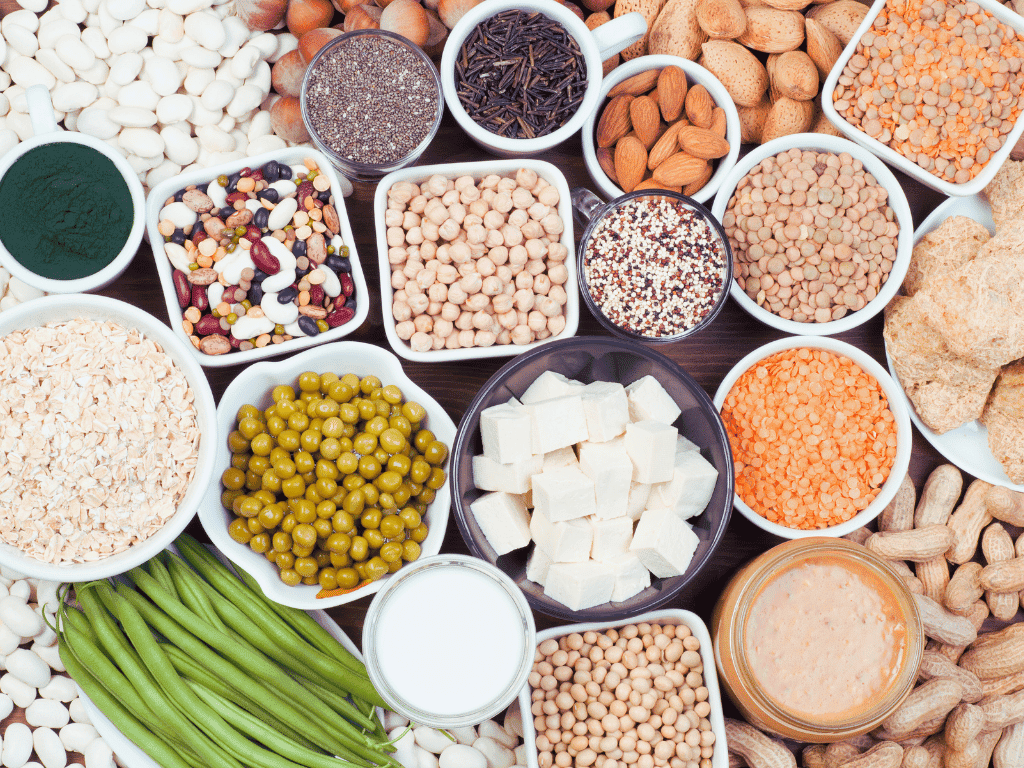
When it comes to plant-based nutrition, choosing the right protein source can significantly impact your health and fitness goals.
This brings us to two popular contenders in the plant protein arena: rice protein and pea protein. If you want to make the right dietary choice and enjoy protein benefits, it’s important to understand the differences between these proteins.
In this guide, we look at the nutritional content, benefits, and ideal use cases for both rice and pea protein.
Introduction to Plant-Based Proteins: Rice and Pea
Plant-based proteins have surged in popularity due to their versatility and nutritional benefits. Among these, rice protein and pea protein stand out for their unique profiles and advantages.
Both proteins offer high-quality, vegan-friendly options but cater to different needs and preferences.
Nutritional Comparison of Rice Protein and Pea Protein
Rice protein is made from brown rice and is known for being hypoallergenic and rich in amino acids. This protein source is free from top 9 allergens and easily digestible, making it suitable for those with food sensitivities or intolerances.
Research has shown that a standard 24g serving of rice protein provides essential amino acids necessary for muscle repair and maintenance when paired with a healthy diet and strength exercise.
Pea protein, sourced from yellow split peas, boasts a rich profile with a higher lysine concentration than rice protein. It can also support muscle growth and recovery, and its digestibility is high given that most of the starch and fiber content have been removed.
Pea protein is also a great option for those with allergies, as it is free from dairy, soy, and gluten.
Both rice and pea proteins are sustainable, Earth-friendly options with a lower carbon footprint when compared to animal proteins.
Benefits of Rice Protein in Your Diet
Rice protein offers several notable benefits:
- Hypoallergenic Nature: Ideal for individuals with dairy, soy, gluten or multiple food allergies.
- Digestibility: With most of the starch and fiber removed rice protein is easily digested and absorbed, making it a good choice for those with digestive issues.
- Muscle Recovery: Contains essential amino acids needed for muscle repair and growth. Rice protein has also been clinically tested multiple times and shown to build muscle as good as whey protein.
- Bland Taste Profile: Being naturally neutral flavored, rice protein offers versatility when mixed into smoothies, baked goods, and even savory dishes.
For a top-quality rice protein supplement, check out Growing Naturals' Organic Rice Protein Vanilla Blast, which provides all the benefits of rice protein in a delicious and convenient form.
Advantages of Pea Protein for Health and Fitness
Pea protein is not without its merits:
- Rich Amino Acid Profile: High in lysine, which is often limited in grain-based proteins.
- Muscle Building: Supports muscle synthesis and recovery, making it a popular choice among athletes.
- Weight Management: Aside from being a source of protein, pea protein is a natural thickener and promotes fullness which can aid in weight loss.
Explore the benefits of pea protein with Growing Naturals' non GMO Pea Protein, a great addition to any health-focused diet.
Which Protein Is Right for You? Rice vs. Pea
Choosing between rice and pea protein depends on your individual needs:
- For Allergies and Sensitivities: Rice protein is less likely to cause allergic reactions and is a good choice for those with multiple food allergies or sensitivities.
- For Muscle Building: While rice protein has been clinically tested to build muscle as good as whey, both rice and pea protein can be used as alternative protein supplements to help build or maintain muscle when consumed as part of a healthy, balanced diet.
- For Weight Management: Both proteins support weight management, but pea protein's ability to enhance satiety can be particularly beneficial.
Incorporating Rice and Pea Protein into Your Diet
Both rice and pea proteins can be easily incorporated into your diet. Use rice protein in smoothies, shakes, yogurts, and some baked goods.
Pea protein can be added to shakes, soups, savory dishes and is especially great for baked goods since it doubles as a natural vegan egg replacer. For more tips on how to integrate these proteins into your meals, visit our Protein 101 page.
Boost Your Protein Intake with Growing Naturals
Choosing between rice protein and pea protein involves considering your specific health goals, dietary needs, and personal preferences.
Both types of protein offer unique benefits and can be valuable additions to a plant-based diet. Whether you're focusing on muscle building, weight management, or allergen-free nutrition, understanding the strengths of each protein will help you make the best choice for your lifestyle.
For more information on plant-based protein sources and their benefits, explore the 12 Reasons Pea Protein Is Good for Your Health and see how Growing Naturals' products can support your dietary needs.
